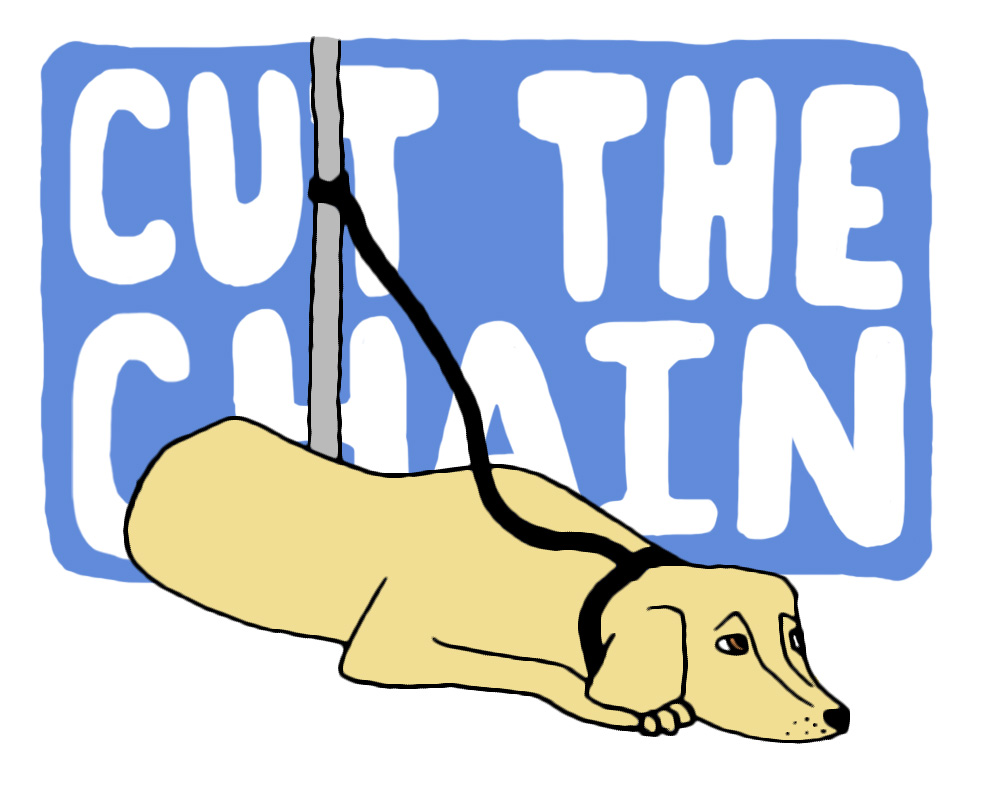Concordia’s animal rights association is working with the SPCA to ban dog chaining in Quebec
Every year in Quebec, thousands of dogs are chained outside and neglected by their owners, forced to endure extreme weather climates for long periods of time, according to the Montreal SPCA. The SPCA and the Concordia Animal Rights Association (CARA) have come together to organize the “Cut the Chain” campaign, which aims to ban the long-term chaining of dogs in Quebec.

Many provinces in Canada, including Nova Scotia and New Brunswick, have already implemented laws against chaining dogs, according to the SPCA.
“Understanding animals and what they stand for can bring a sense of compassion to our own lives,” said Lara Mackenzie, president of CARA. “If you wouldn’t want to be chained outside, why would [dogs]?”
On March 18, CARA will be organizing an event that will encourage students to sign the “Cut the Chain” petition. It will be held from 10 a.m. to 2 p.m. in the lobby of the MB building.
“We will be there with iPads and encouraging people to sign the petition,” Mackenzie said. “It’s about getting students to take literally two seconds of their time [to sign]. Many of us have a strong passion for dogs, and I am sure people will be willing to help.”
Sophie Gaillard, a lawyer with the animal advocacy department at the Montreal SPCA, said dog chaining has become a big issue. “It’s a problematic phenomenon, because it is inhumane and unsafe,” she said. “Dogs who are chained are at an increased risk of injuring themselves by getting tangled up in their chains. They are also frequently neglected because people aren’t typically paying close attention to them, so if they are sick or injured, it isn’t quickly detected. In the winter, dogs are exposed to extreme cold and extreme heat in the summer.”
According to SPCA inspectors, people chain their dogs when they are untrained or misbehaving, but sometimes they are chained to be used as house guards to protect their owner’s property. According to Gaillard, one third of complaints from the inspection department are related to chained dogs.
Gaillard said chaining can cause psychological distress for dogs. “Dogs are social and active animals and when they are isolated, they are unable to play or exercise and they develop severe behaviour problems related to boredom and frustration,” she said. Dogs who are chained by their owners are at a much higher risk of displaying aggressive behaviour, and they are also three times more likely to bite—children in particular, Gaillard said.
“Dogs want to be with their families in a house where there are people, and [passing the law] would greatly improve dog welfare,” said Gaillard. “Even if people do want to keep their dog outdoors, there are better ways of doing it than keeping them at the end of a chain. For example, in a fenced-in yard with an adequate dog house, maybe access to a garage.”
The petition can be signed at cutthechain.ca



